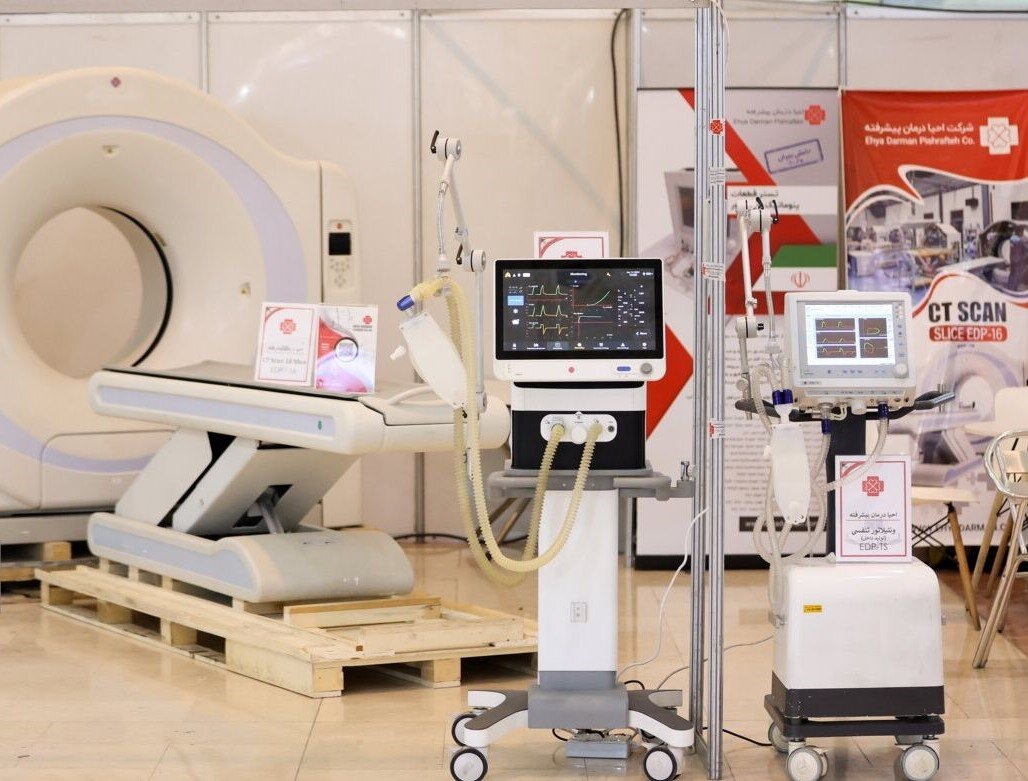Knowledge-based firms in health sector doubled in 3 years
The number of knowledge-based companies that are operating in the health sector has nearly doubled from 762 in the calendar year 1400 (2021-2022) to 1,501 in the current Iranian year that started on March 20.

Knowledge-based companies work for the convergence of science and wealth, boost the knowledge-based economy, realize scientific and economic goals, as well as commercialize research and development results in the field of health, IRNA quoted Yunes Panahi, the deputy health minister, as saying.
Currently, knowledge-based companies in the health sector operate in various fields including agriculture, biotechnology, and food industry, medicine, and high-tech treatment and diagnostic tools, as well as medical devices, supplies, and equipment, the official noted.
The significant and fast-paced growth in the number of knowledge-based companies with over 200 percent increase in their number just over the past year (March 2023 – March 2024), shows the solid foundation, dynamism, and growth of the country in innovation and technology and the productive atmosphere which have been made available in line with the goal of boosting domestic production with public participation.
Over 60 countries import Iranian medical equipment
On January 13, the head of Iran’s Union of Medical Equipment Manufacturers and Exporters said that medical equipment worth around $20 million is exported to more than 60 countries annually.
More than 70 percent of medical equipment and 100 percent of normal hospital beds are domestically made, IRNA quoted Abdolreza Yaqoubzadeh as saying.
Also, over 95 percent of specific ICU and CCU beds and more than 85 percent of operating room medical equipment such as anesthesia machines and other equipment are manufactured with cutting-edge technology in the country, he added.
Yaqoubzadeh went on to say that the country’s need for medical equipment production is three to four billion dollars per year, some one billion dollars of which is imported.
Producing 20 drugs, including radiopharmaceuticals, anticancer drugs, sedatives, prostate cancer detection drugs, eye solutions, and traditional medicine, by knowledge-based companies has saved one million dollars for the country.
Six out of the mentioned drugs were related to cancers and skin diseases, IRNA reported.
Last year (March 2023-March 2024), insufficient drugs decreased from 420 items to 100 items. Most of the drugs were antibiotics, serums, suspensions, neurology and psychiatry drugs, and anesthetics.
Medicine exports to increase
The Food and Drug Administration (FDA) is developing a plan to increase pharmaceutical exports by 30 percent in the mid-term, an official with the FDA has said.
“In the past years, medicine exports in Iran accounted for a small share of non-oil exports. However, over the past year, it experienced a growing trend,” IRNA quoted Seyyed Ali Maboudi as saying.
The official went on to point out that the exports of raw materials and pharmaceutical products over the past Iranian calendar year (March 2023-March 2024) were valued at more than 100 million dollars.
“The Food and Drug Administration is planning to double the medicine exports in the short term and tenfold in the long term,” the official added.
Given the impacts of drugs on the health of society in all countries, they are one of the most complicated types of goods to export as they require registration and quality approvals in each destination country, Maboudi stressed.
Some 600 medical equipment companies are active in the country, producing around 99 percent of the medicine supplied to the domestic market. Medical equipment manufacturers in the country produce and supply over 10,000 types of medical equipment to domestic and foreign markets. Now, various pieces of laboratory equipment are manufactured at prices much lower than the same foreign products.
Iranian knowledge-based companies have succeeded in producing recombinant drugs which are mainly used for treating hard-to-treat diseases such as cancers, MS, hemophilia, and viral diseases.

Write your comment.